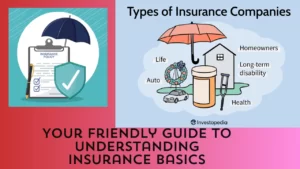Loans in America Are you ready to embark on a journey to financial freedom? In today’s economic landscape, loans play a crucial role in achieving your goals, whether it’s buying a home, pursuing higher education, or starting a business. “Unlocking Your Financial Freedom: Navigating the World of Loans in America” is your comprehensive guide to understanding, obtaining, and managing loans in the United States.
Introduction
The financial world can be daunting, but with the right knowledge and guidance, you can harness the power of loans to improve your life. This article will take you on a step-by-step journey through the American loan landscape, providing insights, tips, and strategies to make informed financial decisions.
Understanding the American Loan Landscape
Before diving into specific loan types and strategies, it’s essential to grasp the dynamics of the American lending system. We’ll explore the factors that influence the availability of loans, interest rates, and eligibility criteria.
Types of Loans Available in America
America offers a diverse range of loans tailored to various needs. We’ll delve into the following loan categories:
- Mortgage Loans: Your pathway to homeownership.
- Personal Loans: Flexible financing for personal expenses.
- Student Loans: Making higher education accessible.
- Auto Loans: Driving your dream car home.
Eligibility and Application Process
Getting approved for a loan depends on several factors. We’ll guide you through the eligibility requirements and the loan application process, making it easier for you to get the financing you need.

Interest Rates and Terms
Understanding interest rates and loan terms is crucial for responsible borrowing. We’ll demystify these concepts and explain how they affect your overall loan cost.
Building a Strong Credit Profile
Your credit score is a critical factor in loan approvals. Learn how to build and maintain a strong credit profile, ensuring you have access to better loan options.
Tips for Responsible Borrowing
Responsible borrowing is the key to long-term financial success. We’ll provide practical tips to help you borrow wisely and avoid common pitfalls.
Loan Repayment Strategies
Once you’ve secured a loan, effective repayment is essential. We’ll discuss various strategies to manage your loan efficiently and reduce the overall interest paid.
Dealing with Financial Hardships
Life is unpredictable, and financial hardships can occur. We’ll offer guidance on how to navigate these challenges and protect your financial well-being.
Loan Consolidation and Refinancing
If you have multiple loans, consolidation and refinancing can simplify your financial life. Learn how to use these strategies to your advantage.
The Role of Credit Unions and Banks
Discover the differences between credit unions and traditional banks when it comes to lending, and find out which one might be the right choice for you.
Online Lenders and Fintech Solutions
In the digital age, online lenders and financial technology (fintech) companies offer innovative loan solutions. We’ll explore the benefits and considerations of these options.
Government Programs and Initiatives
The government plays a significant role in the American lending landscape. Find out about government-backed loan programs and initiatives that can benefit you.
Scams and Predatory Lending Practices
Not all lenders have your best interests at heart. Learn how to identify and avoid scams and predatory lending practices.
Conclusion: Your Path to Financial Freedom
In the conclusion, we’ll summarize the key takeaways and provide you with actionable steps to start your journey towards financial freedom.
5 Unique FAQs
1. How do I choose the right type of loan for my needs?
Choosing the right type of loan depends on your specific financial goals and circumstances. Here are some guidelines:
- Mortgage Loans: If you’re looking to buy a home, a mortgage loan is the way to go. Consider factors like your down payment, the length of the loan (15 or 30 years), and the type of interest rate (fixed or adjustable).
- Personal Loans: These are versatile loans that can be used for various purposes. Personal loans are a good choice for debt consolidation, unexpected expenses, or home improvements.
- Student Loans: If you’re pursuing higher education, federal student loans often offer lower interest rates and flexible repayment options. They should be your first choice before considering private student loans.
- Auto Loans: When buying a car, consider your budget, the type of vehicle you want, and the loan’s interest rate. Make sure the monthly payments are manageable within your budget.
2. What’s the minimum credit score required for loan approval?
The minimum credit score required for loan approval varies depending on the lender and the type of loan. Here’s a general guideline:
- Mortgage Loans: To qualify for a conventional mortgage, a credit score of 620 or higher is typically required. However, higher scores will secure better interest rates. FHA loans may accept credit scores as low as 500, but a higher score will result in better terms.
- Personal Loans: Many lenders offer personal loans to borrowers with credit scores of 600 and above. A higher score often leads to better rates.
- Student Loans: Federal student loans generally don’t have strict credit score requirements. However, some private lenders might require a score in the 600s or higher.
- Auto Loans: The minimum credit score for an auto loan can vary, but you might find options with scores in the 500s. However, a higher credit score will typically result in a lower interest rate.

3. Are there government programs for first-time homebuyers?
Yes, there are government programs designed to help first-time homebuyers. The two most common programs in the United States are:
- FHA Loans: The Federal Housing Administration offers loans with lower down payment requirements and more flexible credit criteria, making it an attractive option for first-time buyers.
- VA Loans: The Department of Veterans Affairs provides loans with competitive interest rates and no down payment requirements for eligible veterans, active-duty service members, and certain members of the National Guard and Reserves.
4. What red flags should I watch out for to avoid loan scams?
To protect yourself from loan scams, be cautious of the following red flags:
- Lenders who guarantee loan approval regardless of your credit.
- Upfront fees before you receive the loan.
- Requests for personal information, such as your Social Security number, over the phone or through unsecured channels.
- Pressure to act quickly or “limited-time offers.”
- Lack of a physical address or contact information for the lender.
Always research lenders, check their reviews, and ensure they are legitimate before proceeding with any loan application.
5. How can I create a budget to ensure I manage my loan repayments effectively?
Creating a budget is essential for managing your loan repayments. Here’s a simple guide:
- List all your sources of income.
- Document your monthly expenses, including housing, utilities, food, transportation, and entertainment.
- Subtract your expenses from your income to determine your available funds.
- Allocate a portion of these funds to your loan payments, savings, and emergency fund.
- Monitor your spending regularly to ensure you stay within your budget.
Online tools and budgeting apps can be incredibly helpful in managing your finances and ensuring that you meet your loan repayment obligations while maintaining a comfortable lifestyle.
By the end of this article, you’ll be well-equipped to make informed decisions about loans in America. Whether you’re a first-time borrower or looking to improve your financial strategies, “Unlocking Your Financial Freedom: Navigating the World of Loans in America” will be your go-to resource for mastering the art of responsible borrowing and achieving your financial goals. Get ready to unlock your path to financial freedom!




























